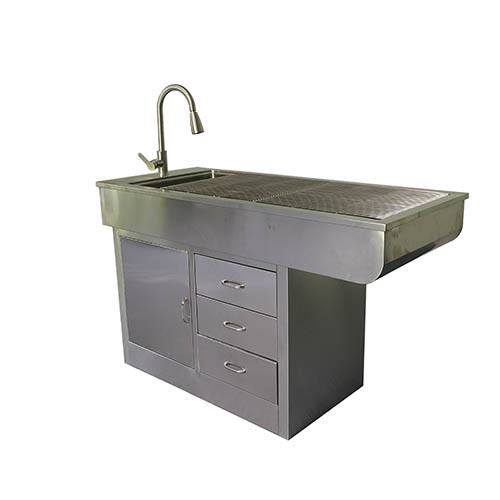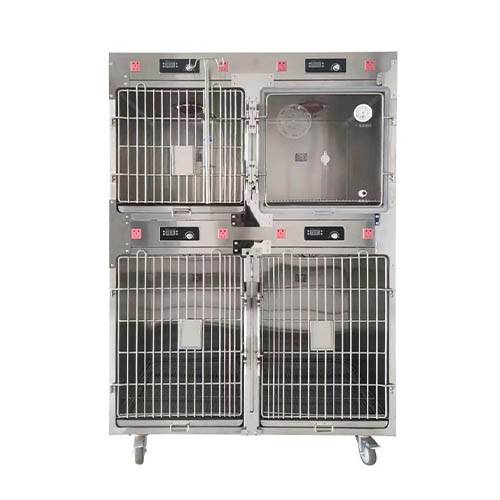Endereço
304 North Cardinal St.
Dorchester Center, MA 02124
Horas de trabalho
Segunda a sexta: 7h00 - 19h00
Fim de semana: 10h - 17h

Selecting the right veterinary animal cages is crucial for providing comfort, safety, and proper care to animals in veterinary practices and facilities. Different species have varying needs and behaviors, necessitating specific considerations when choosing cages. This guide aims to explore the factors to consider when selecting veterinary animal cages for different species, ensuring optimal conditions for their well-being.
The selection of veterinary animal cages is a multifaceted process that requires careful consideration of several factors:









The variety of veterinary animal cages reflects the diverse needs of the animals they house:
| Animal Species | Cage Considerations | Recommended Cage Type |
|---|---|---|
| Rodents (mice, rats, hamsters) | Small, multi-level wire mesh cages with adequate ventilation and accessories for hiding and climbing. | Small Animal Cages |
| Rabbits | Spacious wire mesh cages with litter boxes, hay feeders, and elevated platforms for resting. | Small Animal Cages |
| Cats | Sturdy cages with ample space for movement, litter boxes, scratching posts, and elevated platforms. | Cat Cages |
| Dogs | Cages sized appropriately for the breed, with secure locking mechanisms, comfortable bedding, and food and water bowls. | Dog Cages |
| Reptiles | Specialized enclosures that maintain specific temperature, humidity, and lighting conditions, such as terrariums or vivariums. | Reptile Cages |
| Horses | Large, sturdy cages with adequate space for movement, secure gates, and access to food, water, and bedding. | Large Animal Cages |
| Cattle | Spacious enclosures with secure gates, access to food, water, and bedding, and adequate ventilation. | Large Animal Cages |

Beyond the specific cage type and size, additional factors should be considered when selecting veterinary animal cages:
The selection of appropriate gaiolas para animais veterinários is crucial for ensuring the well-being, safety, and effective treatment of animals under veterinary care. By carefully considering the factors discussed in this guide, you can make informed decisions about the right cages for your specific facility and the diverse array of animals under your care. Remember, the ultimate goal is to create a comfortable, secure, and stimulating environment that promotes animal health and facilitates effective veterinarycare and treatment. It is important to regularly assess and update your veterinary animal cages to ensure they meet the highest standards of animal welfare and care.
Key considerations include cage size, material (such as stainless steel or plastic), ventilation, and suitability for the animal’s behavior and hygiene needs.
Inadequate cage size can lead to stress, behavioral issues, and physical discomfort. Choosing appropriately sized cages supports the animal’s natural behaviors and well-being.
Stainless steel is often preferred for its durability and ease of cleaning. Plastic cages are suitable for small animals due to their lightweight nature.
Cages should be cleaned daily, with thorough disinfection and bedding replacement to maintain hygiene and prevent disease transmission.
Generally, it’s best to avoid housing different species together due to potential conflicts and health risks. Separate cages should be provided based on species-specific needs.
